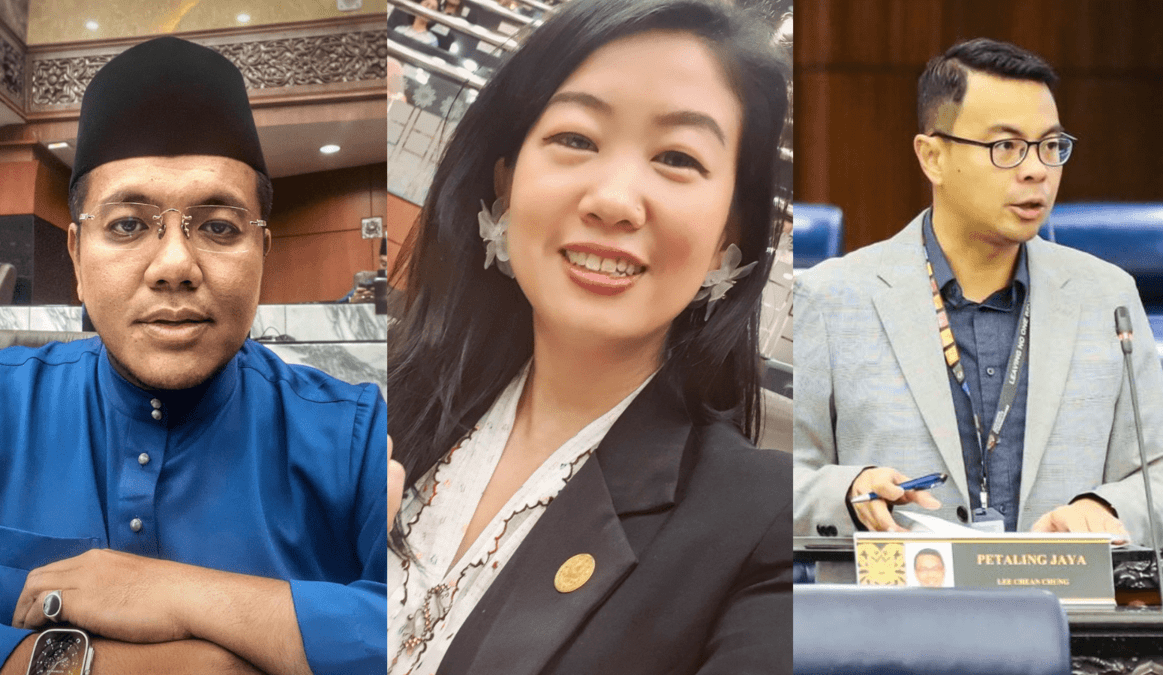KUALA LUMPUR, Jan 19 – Three Selangor state and federal lawmakers have raised deep concerns about a dire shortage of housemen at Universiti Malaya Medical Centre (UMMC), a quaternary hospital in the Klang Valley.
Taman Medan state assemblyman Dr Afif Bahardin from Perikatan Nasional said there is a “serious problem” on how the Ministry of Health (MOH) is distributing house officers (HO) and medical officers (MO) across the country.
“Now is not about buying time anymore. The health care system is collapsing and we are refusing to do anything,” Dr Afif told CodeBlue when contacted. “It’s like if you have a limb necrosis; you can either cut it off or you can let it rot.”
Dr Afif, a UiTM graduate in medicine and surgery, proposed involving the private sector and teaching hospitals in HO training. This would grant institutions like UMMC some authority to hire their own housemen.
“I won’t use the word ‘liberalise’, but it should be opened up a bit. If MOH is unable or cannot afford to pay more HO salaries, they should either open up HO training to the private sector or don’t ask these medical students to go for housemanship training.
“If MOH keeps repeating the same excuse that it is a capex burden – that hiring more people or creating more positions means their spending is going to increase year by year – the situation will just get worse,” said the Bersatu assemblyman.
However, Dr Afif cautioned against a fully independent parallel houseman system, as suggested by doctors at UMMC’s medicine department.
“I would agree to some extent but in the end, you cannot open up everything and have no regulation. Meaning, the MOH can open up HO training to entities like university hospitals or private hospitals that run on a charity mission – they can hire HOs and pay their salaries – but the government still needs to have some control, maybe by setting a limit or quota.
“If you grant full independence to UMMC, in order to overcome their current shortage, for example, they can offer higher salaries. Then, there will be an influx of HOs in UMMC, and of course, going to UMMC comes with prestige,” he explained.
“If that happens, it will affect MOH. So there must be some regulation, authority from MOH in order to control the numbers.
“But to decrease the burden of MOH, this should be considered. There is no point if MOH has the authority, but they can’t manage,” said Dr Afif, who previously worked as a medical officer at Seberang Jaya Hospital and Sungai Buloh Hospital.
“There has to be a mutual understanding between the MOH, Higher Education Ministry (MOHE), and the private sector if they want to do this. Anyhow, we already have a dual health care system. I don’t see any harm in doing this at the human capital level.”
Kampung Tunku ADUN: PJ Residents Can Turn To Iltizam Selangor Sihat Programme
Kampung Tunku state assemblywoman Lim Yi Wei found communications from UMMC’s Department of Medicine “quite concerning”, as many Petaling Jaya residents consider UMMC as their primary hospital.
“However, the lack of HOs is a nationwide issue and MOH needs to look at it urgently, and really raise the bar for how HOs are treated,” Lim told CodeBlue.
Lim said cautioning PJ residents to avoid UMMC may cause panic, especially for chronic patients. “A better strategy would be to inform residents to use the Iltizam Selangor Sihat (ISS) programme, which allows them to access primary health care and basic procedures like taking bloods/ urine samples at local general practitioners (GPs).
“This actually has always been the aim of ISS: to channel the B40 who require basic treatment from long hospital queues to GPs in the area,” said the Pakatan Harapan (PH) lawmaker from the DAP.
On the proposal for a parallel HO system for UMMC, Lim said the idea seems “reasonable” as the university hospital produces medical graduates.
“If they can establish an absorption criteria (if the HOs want to move elsewhere within the MOH staffing ecosystem) and provide pathways within UMMC for specialisation, that would speed up the process of acquiring HOs, rather than depending on MOH to assign,” Lim said.
Petaling Jaya MP To Raise HO Shortage In Parliament
Meanwhile, Petaling Jaya MP Lee Chean Chung said he was “deeply concerned” for his constituents about the critical houseman shortage at UMMC that has prompted the Department of Medicine to consider a “Zero HO Protocol”.
The protocol assumes that the biggest department in UMMC no longer has trainee doctors.
Lee supports the suggestion that Health Minister Dzulkefly Ahmad should promptly dispatch house officers to UMMC as a short-term measure to alleviate the university hospital’s acute manpower shortage.
The PH MP further plans to address this issue during the upcoming Parliament meeting, scheduled to commence on February 26.
He intends to query the health minister on whether he should advise Petaling Jaya constituents regarding potential risks to patient safety when visiting UMMC or caution them against getting frustrated with the staff due to the severe manpower shortage.
The PKR lawmaker also supported UMMC doctors’ proposal for a parallel HO system to MOH for UMMC to hire its own HOs. Currently, MOH decides on where to assign HOs to MOH or university hospitals from among medical graduates.
Dzulkefly has yet to issue a statement, although the health minister reposted on X a doctor’s observations and recommendations for Malaysia’s housemanship programme, in response to CodeBlue’s report on the proposed “Zero HO Protocol” at UMMC’s Department of Medicine.








